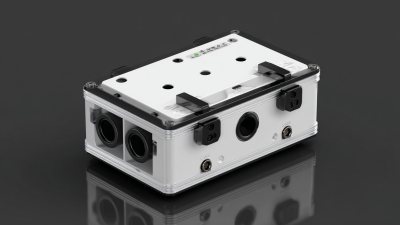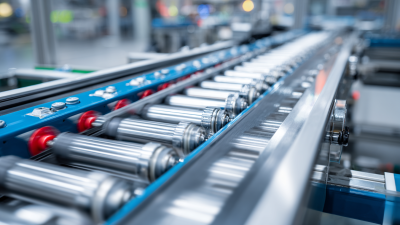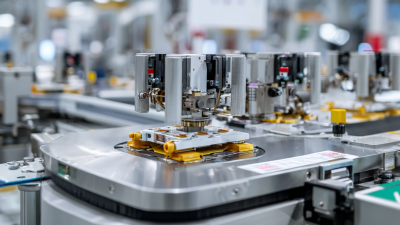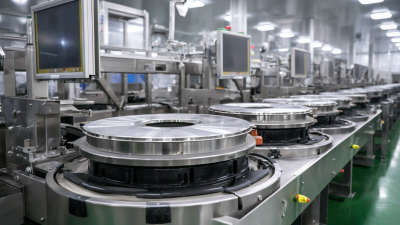In the fast-paced world of manufacturing and logistics, maintaining accuracy in weight measurement is not just a regulatory requirement but a cornerstone of operational efficiency. Experts in the field, such as John Smith, a leading authority in checkweighing technology, emphasize the importance of getting it right: "Precision in weight measurement can significantly reduce costs and enhance the quality of products." This statement underlines the critical role that Checkweighing Machines play across various industries, from food processing to pharmaceuticals.

In this article, we will delve into essential insights surrounding Checkweighing Machines, offering readers practical tips to ensure accurate weight measurement in their operations. Understanding the intricacies of these machines is vital for businesses aiming to optimize their production lines while adhering to stringent regulatory standards. By leveraging advanced technologies, industries can not only achieve precise measurements but also improve overall productivity and reduce waste.
Whether you are a seasoned professional or new to the field, mastering the nuances of Checkweighing Machines will empower you to make informed decisions that positively impact your business. Join us as we explore the best practices and innovations in weight measurement, ultimately driving excellence in your operations.
Checkweighing machines play a pivotal role in various industries where precision in weight measurement is crucial. These machines are designed to provide accurate weight readings, ensuring compliance with regulatory standards and maintaining product quality. One of the key features that set checkweighing machines apart is their ability to detect package weight deviations in real-time. This functionality not only helps prevent costly errors in distribution but also minimizes waste by ensuring that only correctly weighed products reach the customer.
Another significant feature of checkweighing machines is their integration with data logging systems. This allows for the automatic recording of weight measurements, which can be analyzed to optimize manufacturing processes. Additionally, many modern checkweighers include user-friendly interfaces and customizable settings, making them accessible for various operators. Their versatility in handling different product types and weights makes them invaluable across sectors, from food and beverage to pharmaceuticals, where accuracy is non-negotiable.
Checkweighing machines play a crucial role in various industries, ensuring products meet specified weight standards. In the food and beverage sector, these machines are commonly used to guarantee that packaged goods maintain compliance with legal weight requirements. This not only helps to prevent financial losses due to underfilled products but also upholds quality control, enhancing consumer trust in the brand. By automating the weight verification process, manufacturers can efficiently manage production lines while minimizing human error.
In the pharmaceutical and manufacturing sectors, checkweighing machines serve to optimize operational efficiency and maintain product integrity. For pharmaceuticals, precise measurements are essential for regulatory compliance and safety. Thus, these machines ensure that every pill or vial meets the designated weight criteria, reducing the risk of contamination or incorrect dosages. Meanwhile, in manufacturing, checkweighing systems monitor components and packaged goods, aiding in inventory management and quality assurance. This versatility across industries highlights the importance of checkweighing machines in facilitating accurate weight measurement, maximizing productivity, and ensuring compliance with industry standards.
| Industry | Typical Applications | Checkweighing Machine Type | Common Specifications |
|---|---|---|---|
| Food & Beverage | Portion control, bulk weight measurement | In-motion checkweighers | Up to 300 Kg/h capacity, ±0.1g accuracy |
| Pharmaceutical | Weight verification of packed products | Static checkweighers | Up to 50 Kg/h capacity, ±0.01g accuracy |
| Logistics | Package validation, shipping weight measurement | Automated checkweighers | Up to 500 Kg/h capacity, ±0.5g accuracy |
| Cosmetics | Ensuring correct fill weights | Weighing machines with feedback systems | Up to 100 Kg/h capacity, ±0.1g accuracy |
| Chemical | Batch weighing, raw material measurement | High-capacity checkweighers | Up to 1000 Kg/h capacity, ±0.5g accuracy |
Checkweighing machines are becoming indispensable in various industries, especially when it comes to maintaining quality control in production lines. One notable benefit of implementing these machines is their ability to enhance accuracy in weight measurement. By automating the weighing process, companies can significantly reduce human error, ensuring that products consistently meet specified weight requirements. This not only helps in adhering to regulatory standards but also boosts customer satisfaction by providing accurately weighed products.
Tip: Regularly calibrate your checkweighing machines to maintain their accuracy and reliability. This practice can prevent potential discrepancies in weight measurements and avoid costly production errors.
Moreover, the integration of checkweighing machines can streamline production processes. As these machines work quickly and efficiently, they enable faster throughput while simultaneously monitoring weights at every stage of production. This capability allows manufacturers to identify and rectify issues on-the-fly, thus minimizing waste and optimizing resource allocation.
Tip: Choose checkweighing machines that offer real-time data reporting. This feature can aid production managers in making informed decisions swiftly, enhancing overall operational efficiency.
Checkweighing machines play a vital role in ensuring precise weight measurement across various industries. However, several factors can significantly influence their accuracy. Environmental conditions such as temperature, humidity, and vibrations can affect the performance of these machines. For instance, extreme temperatures can cause mechanical components to expand or contract, leading to inconsistent measurements. Additionally, vibrations from nearby equipment can disrupt the stability of the checkweigher, resulting in erroneous readings.
Tips: To mitigate these issues, it’s essential to install checkweighing machines in a controlled environment. Regular maintenance and calibration are crucial to maintain their accuracy. Using anti-vibration tables can also help enhance measurement consistency.
Another critical factor is the operator's handling of the machines. Inconsistent loading techniques or improper placement of items can lead to inaccurate measurements. Ensuring that items are centered and stable on the checkweigher can greatly improve the accuracy of the readings.
Tips: Training operators on the correct loading procedures and the importance of maintaining a uniform process can lead to better performance. Implementing standard operating procedures (SOPs) can further standardize practices and reduce variability in measurements.
Checkweighing machines play a crucial role in ensuring accurate weight measurement across various industries, from food packaging to pharmaceuticals. To maintain their optimal performance, regular maintenance is essential. According to a report by the International Society of Automation, nearly 15% of production errors can be attributed to equipment malfunctions, underscoring the importance of a rigorous maintenance schedule.
One of the best practices for maintaining checkweighing machines is conducting periodic calibration. Calibration not only ensures precision but also extends the lifespan of the equipment. Furthermore, keeping the machines clean can prevent dust and residue build-up that may affect their functionality. A study published in the Journal of Manufacturing Science and Engineering indicates that machines with regular cleaning protocols can reduce downtime by up to 30%.
Tips for Maintenance:






